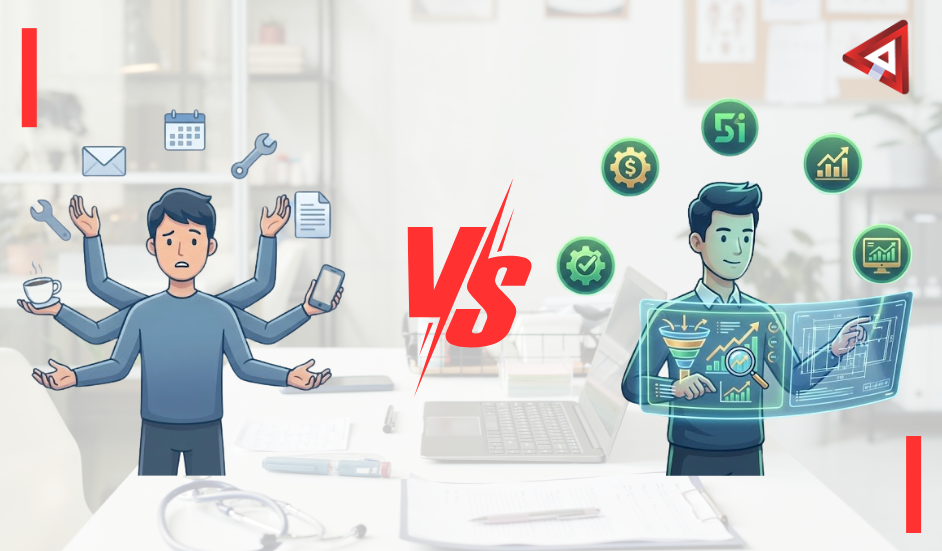As the world rapidly moves towards digitalization, technical support is more crucial than ever before. With businesses expanding their operations and services online, the demand for virtual assistants (VAs) with technical support expertise has surged. The role of a Tech Support Virtual Assistant is to provide essential customer service and technical help from a remote location, helping users troubleshoot problems, answer technical queries, and manage systems or software. A successful technical support VA must possess a range of skills that are vital not only for resolving issues efficiently but also for maintaining a high level of customer satisfaction.
This article outlines five must-have skills for a successful Technical Support Virtual Assistant, covering everything from communication to technical proficiency, and customer service orientation. By honing these skills, one can ensure that their virtual support service delivers top-notch performance and enhances the overall user experience.
Must-Have Skills for a Successful Technical Support VA
1. Exceptional Communication Skills
Communication is at the heart of any successful technical support role. As a Technical Support Virtual Assistant, one will be engaging with customers through various channels such as live chat, email, phone, and sometimes even video calls. Effective communication enables one to understand the problem, convey solutions clearly, and maintain a positive rapport with users.
Here are a few key aspects of communication that are essential:
- Active Listening: The ability to listen carefully to the customer’s issue is vital. Often, users may not be able to articulate their problems clearly, and it’s up to the virtual assistant to ask the right questions and read between the lines to diagnose the issue accurately. Active listening builds trust and shows empathy, which can be crucial for defusing frustration.
- Clear & Concise Explanation: Explaining technical issues or solutions in a simple and understandable way is key. Many customers may not have a technical background, so it’s important to avoid jargon and complex terminology. Using analogies, step-by-step guides, or screenshots can help make the troubleshooting process more digestible.
- Patience & Professionalism: Often, one will encounter frustrated customers who are struggling with technical issues. Patience is necessary to manage these situations calmly, ensuring that the user feels heard and understood. Maintaining professionalism at all times is important for building positive customer relationships, even in challenging circumstances.
Incorporating these communication skills will increase one’s effectiveness as a Technical Support Virtual Assistant and ensure that one’s customers feel confident and supported during their interactions.
2. Strong Technical Knowledge & Problem-Solving Skills
A successful Technical Support Virtual Assistant must possess a solid understanding of technology. This is arguably the most critical skill for a TSVA. Without adequate technical expertise, it would be impossible to diagnose and resolve issues efficiently.
- Proficiency in Common Software & Platforms: Depending on the nature of the support provided, a TSVA needs to be familiar with the software or systems the business uses. Whether it’s customer relationship management (CRM) software, content management systems (CMS), or internal business tools, a TSVA must be able to troubleshoot problems related to those tools. Staying updated with software updates, patches, and new features is also crucial.
- Hardware Knowledge: Even though most technical support work focuses on software issues, understanding basic hardware issues is essential. Customers may report problems with devices like printers, laptops, or other peripheral equipment, and being able to provide basic troubleshooting advice can go a long way in building credibility as a technical support assistant.
- Problem-Solving Abilities: The core of a TSVA’s job is problem-solving. It’s not just about identifying the issue but also about offering effective solutions. This involves critical thinking and sometimes troubleshooting under time pressure. Whether it’s assisting with network connectivity issues, software bugs, or hardware malfunctions, being able to quickly diagnose and resolve problems is essential.
Having a deep technical skill set, alongside strong problem-solving capabilities, enables a Virtual Technical Support Assistant to provide valuable, timely assistance to clients and users. Additionally, being proactive in learning new tools and technologies can set one apart in a competitive virtual support market.
3. Familiarity with Remote Tools & Platforms
As a Technical Support VA will typically be working remotely, they must be adept at using a variety of remote collaboration tools. These tools not only help them communicate with customers but also assist in diagnosing and solving technical problems. Familiarity with remote desktop applications and ticketing systems is non-negotiable for a successful VA.
Here’s an overview of the essential tools and platforms a TSVA needs to master:
- Ticketing Systems (e.g., Zendesk, Freshdesk, Jira): These systems help organize customer queries, track issues, and ensure timely resolution. Having an understanding of ticket management systems is critical for maintaining a streamlined support process. It allows one to prioritize issues, collaborate with other team members, and ensure no customer inquiry is left unanswered.
- Remote Desktop Access Tools (e.g., TeamViewer, AnyDesk, RemotePC): In many technical support roles, a TSVA may need to access the user’s computer remotely to diagnose or fix issues. Proficiency with these tools is crucial for providing hands-on technical support, especially for more complex problems that cannot be easily solved through instructions alone.
- Communication Platforms (e.g., Slack, Microsoft Teams, Zoom): Communication platforms like Slack or Microsoft Teams are used for internal team collaboration and messaging with clients. Zoom or Google Meet might be used for video calls when direct interaction is required to troubleshoot problems or explain solutions in detail.
- Knowledge Management Systems: Platforms like Confluence or internal knowledge bases help document solutions to common problems, FAQs, and troubleshooting guides. Familiarity with these platforms can improve efficiency, as one can quickly access solutions and share them with customers.
Mastering these tools and platforms will not only improve a TSVA’s workflow but also help streamline the entire customer support process, leading to faster response times and more effective problem-solving.
4. Customer Service & Empathy
A successful Technical Support Virtual Assistant is not just a problem-solver; they are also a customer service professional. Providing technical support goes beyond resolving issues—it’s about delivering a positive and supportive experience for the customer.
- Empathy: Understanding the frustration or confusion that the customer may be feeling is key. Many users may not fully understand the technical issue at hand, and their stress can be amplified by the frustration of dealing with a problem that affects their work or daily life. Demonstrating empathy can go a long way in calming anxious customers and making them feel understood.
- Positive Attitude: Always maintaining a positive and upbeat attitude can transform a potentially negative experience into a positive one. A good VA will remain friendly, respectful, and encouraging even when troubleshooting complex or frustrating issues. This positive interaction can significantly impact customer satisfaction and loyalty.
- Time Management: Customer support requests often come in waves, and time management is crucial. Being able to balance multiple tasks—such as responding to emails, managing live chat inquiries, and resolving issues in a timely manner—ensures that each customer is given the attention they need without unnecessary delays. Efficient time management skills will improve your effectiveness as a TSVA.
A Technical Support Virtual Assistant who possesses a genuine interest in helping others, combined with excellent customer service skills, will consistently provide the highest level of support, enhancing both user satisfaction and business success.
5. Adaptability & Continuous Learning
In the world of technology, things evolve rapidly. New software, platforms, and tools are introduced frequently, and with these changes come new challenges. The best Technical Support VA are those who remain adaptable and are committed to continuous learning.
- Learning New Technologies: To stay competitive, it’s important to keep up-to-date with new tools and software in the industry. A successful VA embraces change and is proactive in learning new technologies that can improve their efficiency and the quality of support they provide. Whether it’s learning a new CRM system, understanding emerging tech trends, or mastering a new troubleshooting tool, continuous learning is key.
- Flexibility with Clients: A TSVA will have to work with different clients, each with unique needs, tools, and workflows. The ability to quickly adapt to each client’s specific environment and systems is crucial. Clients may also shift their priorities or adjust their processes, and a flexible VA can adjust to these changes without disrupting the support process.
- Staying Calm Under Pressure: As technical issues can sometimes be urgent, being able to stay calm under pressure and quickly pivot to find solutions is an invaluable skill. Adaptability in these high-pressure situations ensures that issues are resolved efficiently and with minimal stress for both the VA and the customer.
Final Thoughts
Becoming a successful Technical Support Virtual Assistant involves much more than just technical know-how. While proficiency in tools and troubleshooting is essential, effective communication, excellent customer service, adaptability, and a commitment to continuous learning are equally important. By cultivating these five must-have skills, top-tier Technical Support Virtual Assistants are created, delivering outstanding support and contributing to the overall success of the businesses you work with. By continually honing these skills and staying updated on industry trends, virtual assistants will remain competitive in the growing field of technical support and build rewarding careers as Virtual Technical Support Assistants.
Regardless of the size of the business you represent, If you’re considering hiring technical support experts for your projects, VoxtenD is here to help. Our suite of VA services covers all aspects of technical support and beyond, ensuring that your business gets the help it needs, no matter the size or needs of your business. With round-the-clock availability, VoxtenD is your partner in achieving business success. Contact us today to explore how our services can benefit your business.







